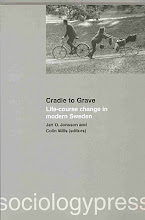It's that time of year when my MSc students are starting to seriously worry about choosing a dissertation topic. With that in mind here are my top tips:
1. You should choose something that is challenging enough to be worth doing, but not so difficult that you can't make any real progress with it. Significant difficulties will be: lack of data; poor quality data; so much data that you exceed the computational capacity of your hardware; data whose structure requires the application of sophisticated techniques that you don't know or can't easily acquire on your own. If any of these difficulties seem likely, think again.
2. Choose a topic that relates to something you have studied this year. That makes it so much more likely that your dissertation will be rooted in an ongoing scientific research programme that somebody around here cares about rather than looking like a 'puzzle' that fell out of the sky.
3. Have a question, preferably one that you don't already know the answer to. If you can't formulate what you are doing as a question then you probably haven't got a suitable dissertation topic. If you know the answer already then it probably isn't worth doing.
4. The English critic F. R. Leavis had some good advice on choosing a dissertation topic : choose one that gives you something practical to do on Monday morning. That way you get a sense of making progress .
5. Have realistic expectations about what your supervisor can do for you and how long it will take them to do it. If they are a specialist in the area you choose you will get more out of them than if you choose to work in an area they know little about. The choice is yours and, as in life, there are trade offs to be made that have to be lived with.
6. If you think you want to collect your own data, be realistic about how long that is likely to take, how relevant it is and how good the quality will be. Listen carefully to your supervisor's advice. A dissertation in which all your time is eaten up in data collection is unlikely to be terribly successful.
7. If you plan to leave Oxford during the Summer to collect data or for other reasons be realistic about the consequences. In principle supervision by email is possible, but it is rarely entirely satisfactory and if you choose this way of doing things then: caveat emptor!
1. You should choose something that is challenging enough to be worth doing, but not so difficult that you can't make any real progress with it. Significant difficulties will be: lack of data; poor quality data; so much data that you exceed the computational capacity of your hardware; data whose structure requires the application of sophisticated techniques that you don't know or can't easily acquire on your own. If any of these difficulties seem likely, think again.
2. Choose a topic that relates to something you have studied this year. That makes it so much more likely that your dissertation will be rooted in an ongoing scientific research programme that somebody around here cares about rather than looking like a 'puzzle' that fell out of the sky.
3. Have a question, preferably one that you don't already know the answer to. If you can't formulate what you are doing as a question then you probably haven't got a suitable dissertation topic. If you know the answer already then it probably isn't worth doing.
4. The English critic F. R. Leavis had some good advice on choosing a dissertation topic : choose one that gives you something practical to do on Monday morning. That way you get a sense of making progress .
5. Have realistic expectations about what your supervisor can do for you and how long it will take them to do it. If they are a specialist in the area you choose you will get more out of them than if you choose to work in an area they know little about. The choice is yours and, as in life, there are trade offs to be made that have to be lived with.
6. If you think you want to collect your own data, be realistic about how long that is likely to take, how relevant it is and how good the quality will be. Listen carefully to your supervisor's advice. A dissertation in which all your time is eaten up in data collection is unlikely to be terribly successful.
7. If you plan to leave Oxford during the Summer to collect data or for other reasons be realistic about the consequences. In principle supervision by email is possible, but it is rarely entirely satisfactory and if you choose this way of doing things then: caveat emptor!
If you are completely clueless about what to do then you could do worse than read the following paper by Gary King. It's not exactly about writing a dissertation, but a lot of the advice is transferrable as indeed is the strategy of starting off by trying to replicate a published study.









No comments:
Post a Comment